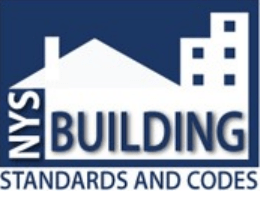
Moorehouse has taken on the position vacated by Tim King, the previous team leader of the State Administrative Agency (SAA) of New York, who left for health reasons. King had approved foundation systems in his duties to follow HUD’s directive for a state agency to carry out the standards as set forth by the federal government. Alternate foundations are allowed by HUD Code, but must be approved by an engineer.
Moorehouse, who passed the state’s training requirements for Code Enforcement Officials, now questions alternate foundation systems approved by King, as well as systems going back over a 30-year period of failure-free service. A recall on manufactured homes? The costs to retailers and community owners, as well as to owners, would be astronomical.
MHProNews publisher L. A. “Tony” Kovach states this is a challenge to the MH industry and must be met head-on, lest it ripples into other states.
Friday morning at the NYHA meeting, New York State Building and Standards Code (BSC) Director Ronald Peister, Moorehouse and Assistant Director for Regional Services, Brian S. Tollisen, P.E., appeared in person to address industry leaders. While Peister complained of staffing problems, he insisted BSC is acting in accordance with HUD Code, that he wants to work with the MH industry and totally supports affordable housing.
New York Housing Association Executive Director Nancy Geer pointed out that the HUD Code is and has been performance-based, not prescriptive-based. Former HUD Code Manufactured Housing program director Bill Matchneer, in a video interview, speaks of the quality of new MH and also of the performance basis for the code. Matchneer’s office would have had contact with New York state’s Tim King.
When Peister was asked for copies of consumer complaints, he replied that would require a Freedom of Information Act (FOIA), adding that transparency and following HUD’s guidelines was the agency’s aim.
The problems may stem from Moorehouse’s misinterpretation, or that it may be a leveling issue instead of a foundation issue, but Peister committed to a meeting within the month with HUD, MH industry members, and NY SAA. In the meantime, the NY SAA team left receiving “a first-hand sense from industry members of the range of frustration, anger and concerns their agency’s field agent’s posture had created.”
Both sides understand they must resolve this issue. For the full report, click here. ##
(Image credit: New York State Building and Standards Codes)

